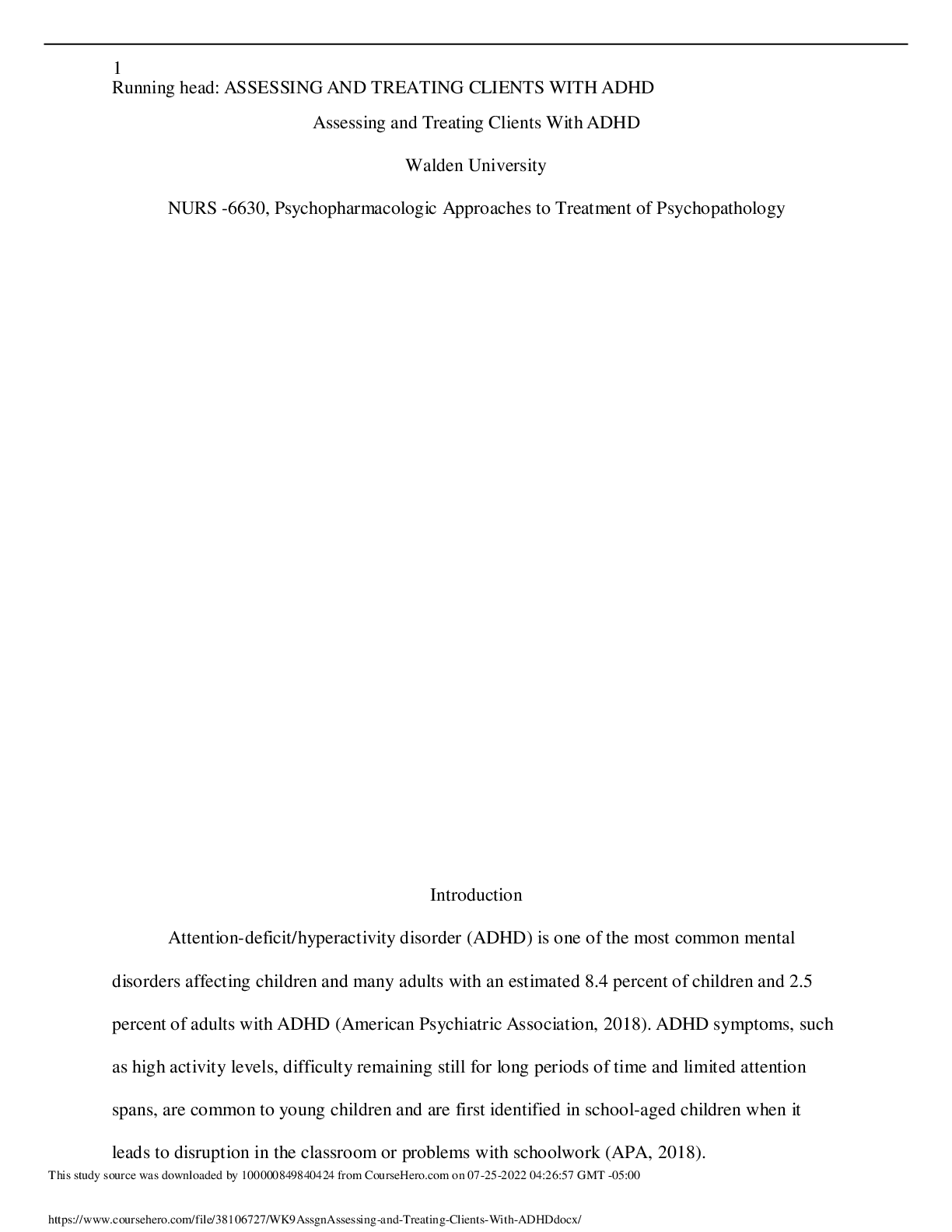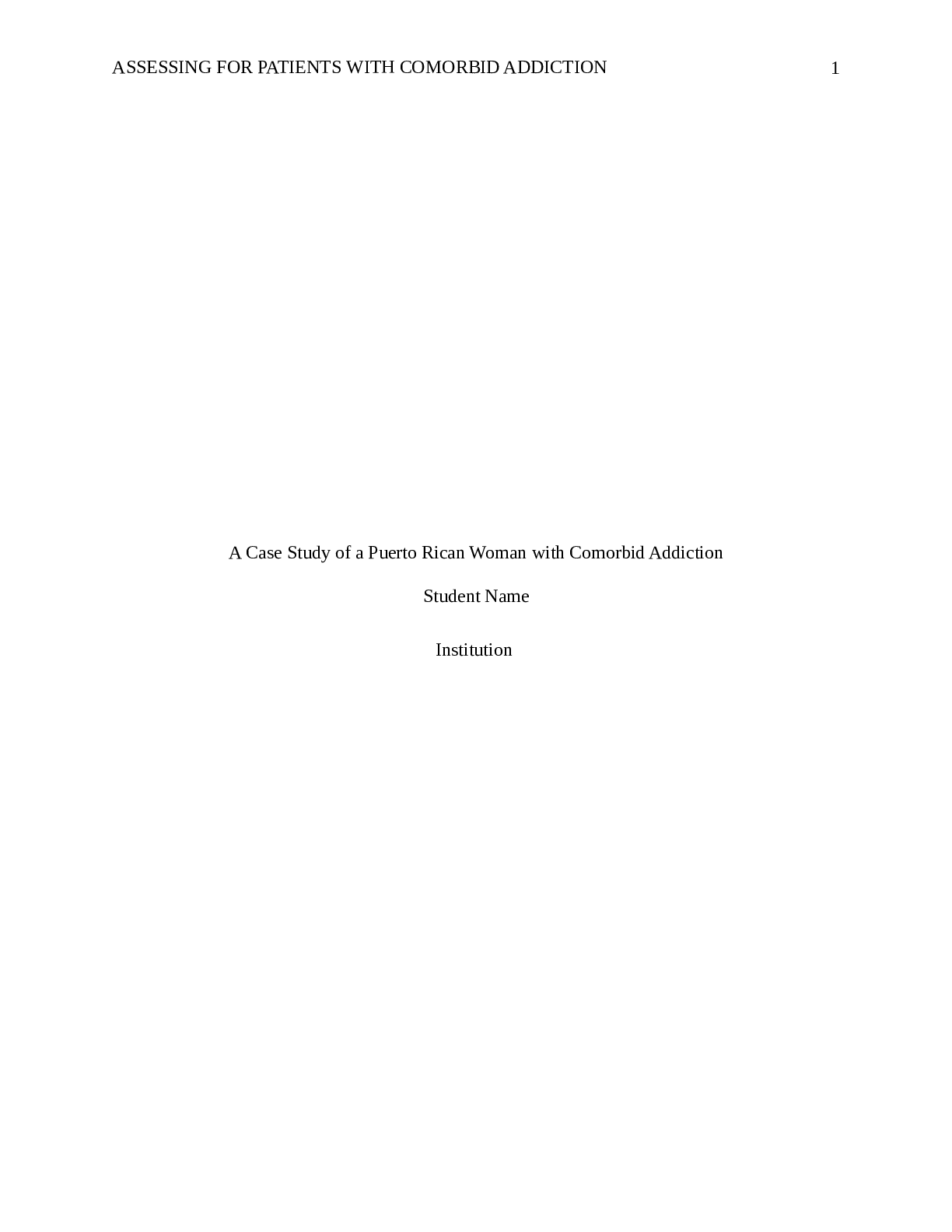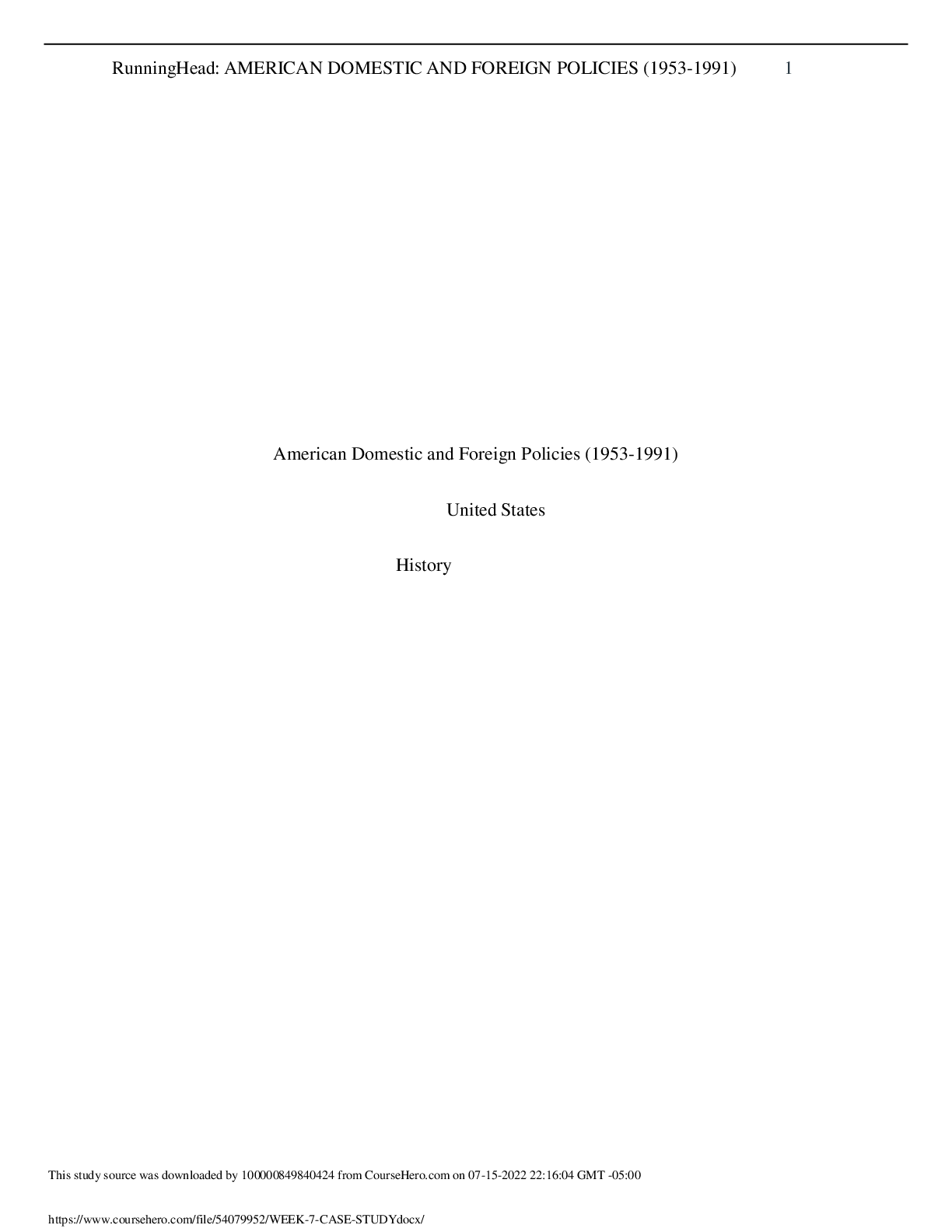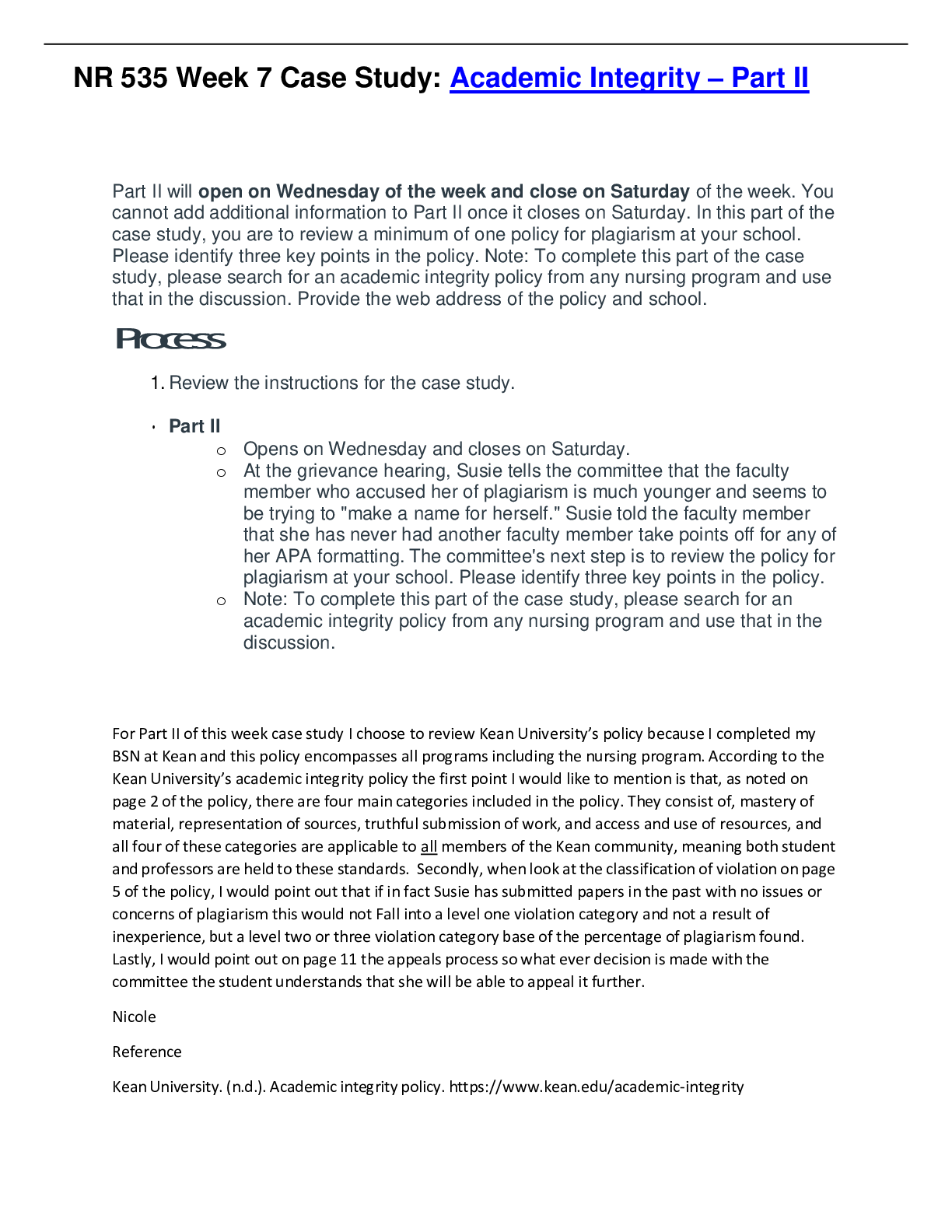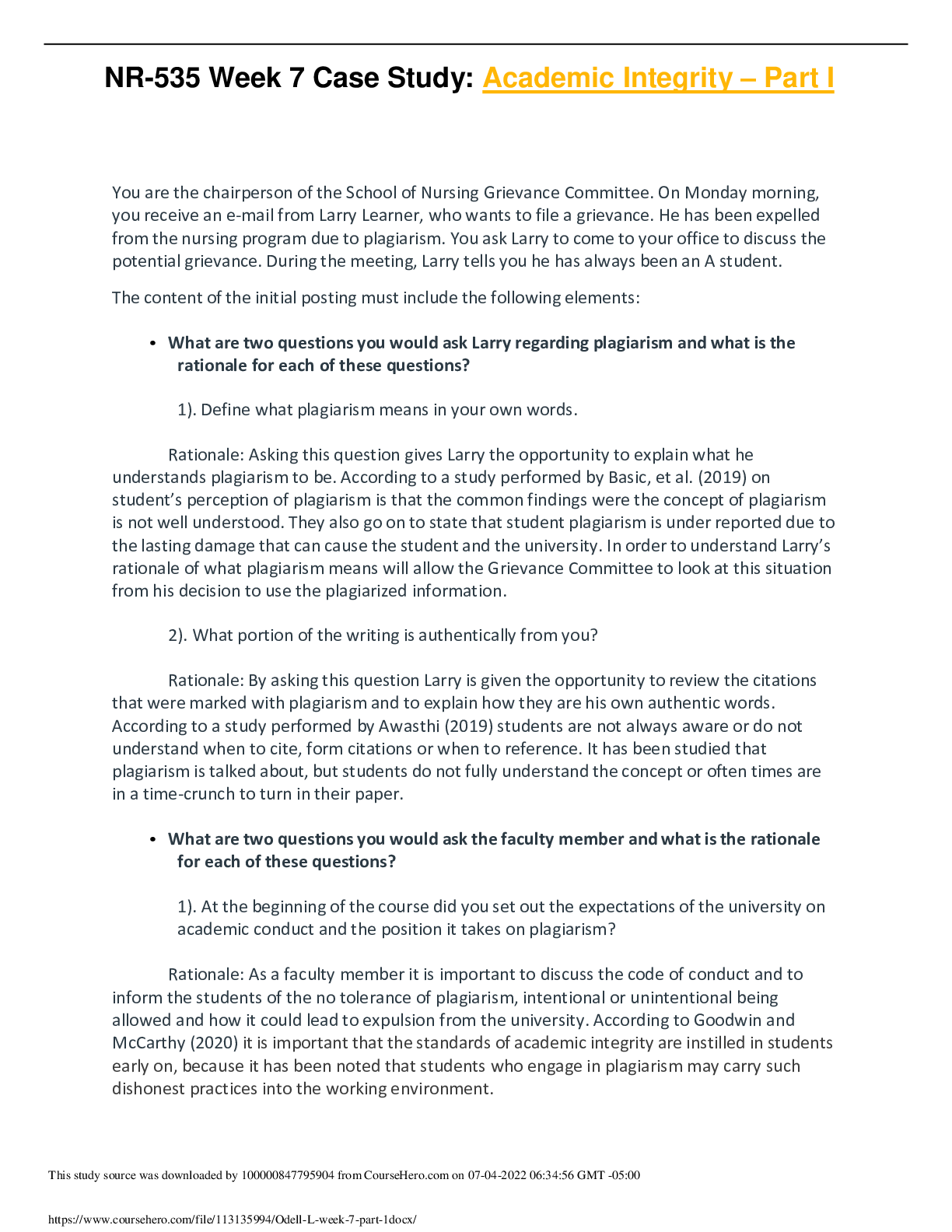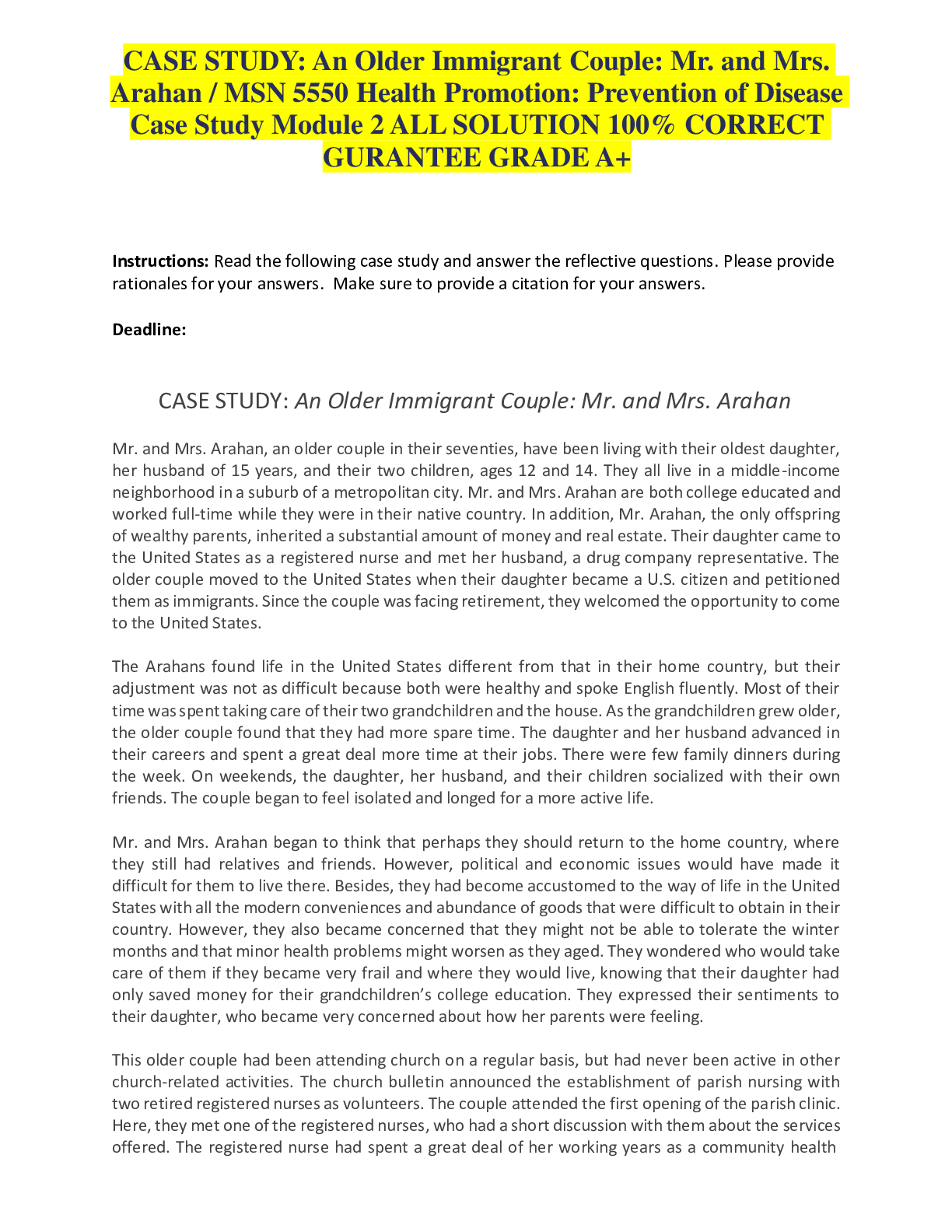*NURSING > CASE STUDY > (Answered)Assessing and Treating Patients with Anxiety Disorders / NURS 6630 Week 6 Assignment: Asse (All)
(Answered)Assessing and Treating Patients with Anxiety Disorders / NURS 6630 Week 6 Assignment: Assessing and Treating Patients With Anxiety Disorders_Examined Case Study: A Middle-Aged Caucasian Man With Anxiety
Document Content and Description Below
Introduction The patient is a 46-year-old white male who reports to the emergency room complaining of shortness of breath, chest tightness, and feeling of impending doom. The patient's PCP refers h... im to me, and he indicates that he has some mild hypertension that is treated with a low sodium diet. After reviewing the patient, he is diagnosed with a generalized anxiety disorder. The patient's Hamilton Anxiety Rating Scale (HAM-A) score of 26 is in the borderline of moderate and high anxiety severity. He is also slightly obese, with about 15lbs. overweight. The patient had his tonsils removed when he was eight years old but has had an unremarkable medical history since that time. At the ER, myocardial infarction was ruled out, and his EKG was normal. The rest of his physical exam was within normal limits. The patient's social history predisposes him to the diagnosis of generalized anxiety disorder. He reports that the management at his workplace is harsh, and he fears for his job. The client is single and is attempting to take care of his aging parents in his home. To combat the worries about work, the patient drinks three to four beers every night. He struggles with the work-life balance since he has to put up with the pressure at work and still take care of his parents. The symptoms have since aggravated, and the patient reports feelings of impending doom. However, he reports that he has never been on any type of psychotropic medication. The client is alert, oriented to person, place, time, and event, and appropriately dressed. His speech is clear, coherent, and goal-oriented. Affect is somewhat blunted but does brighten several times throughout the clinical interview. His HEENT assessment is normal. Decision #1: Begin Zoloft 50 mg orally daily This study source was downloaded by 100000860583932 from CourseHero.com on 01-26-2023 10:44:25 GMT -06:00 https://www.coursehero.com/file/84835072/NURS-6630-Week-6-Assignment-Amarachidocx/ 3 The symptoms presented by the patient informs the decision to begin the patient on Zoloft 50 mg. The Hamilton Anxiety Rating Scale score of 26 is significantly high (Hamilton, 1959). If the client had a lower score, I would have reduced the dosage to 25 mg orally daily. Secondly, the patient was diagnosed with mild hypertension. However, he has opted to manage the condition with a low sodium diet. It is important to consider the side effects of the drugs when treating this patient that do not aggravate hypertension's underlying conditions. Zoloft belongs to the sertraline drug category, which is an antidepressant of the selective serotonin inhibitor class. The major side effects of Zoloft include nausea, dizziness, dry mouth, drowsiness, increased sweating, loss of appetite, stomach upset, diarrhea, or trouble sleeping (Bui et al., 2016). However, these side effects are specific to different patients. The prescription is chosen since I have judged that the patient's benefits are greater than the associated risks of the side effects. I did not select the other two options because of the associated side effects. For instance, Tofranil (imipramine) 25 mg orally BID is associated with side effects, including blurred vision, constipation, nausea, vomiting, and weight gain. Buspirone 10 mg orally BID also causes side effects such as chest pains, lightheadedness, and shortness of breath (American Psychiatric Association, 2010c). These medications also cause sleep problems and feelings of nervousness or excitement. Therefore, Zoloft would be the best choice for this patient. The goal of the treatment would be to reduce the symptoms presented by the patient. Therefore, after the beginning of Zoloft 50 mg orally daily, the HAM-A score should have reduced from 26 to a mild anxiety severity level. Additionally, the shortness of breath, feeling of impending doom, and chest tightness should reduce after four weeks of medication. This study source was downloaded by 100000860583932 from CourseHero.com on 01-26-2023 10:44:25 GMT -06:00 https://www.coursehero.com/file/84835072/NURS-6630-Week-6-Assignment-Amarachidocx/ 4 The major ethical consideration is the patient's social history. He is currently living with his aging parents and reports occasional drinking. Selective serotonin reuptake inhibitors (SSRIs), including Zoloft, act by changing how [Show More]
Last updated: 1 year ago
Preview 1 out of 8 pages
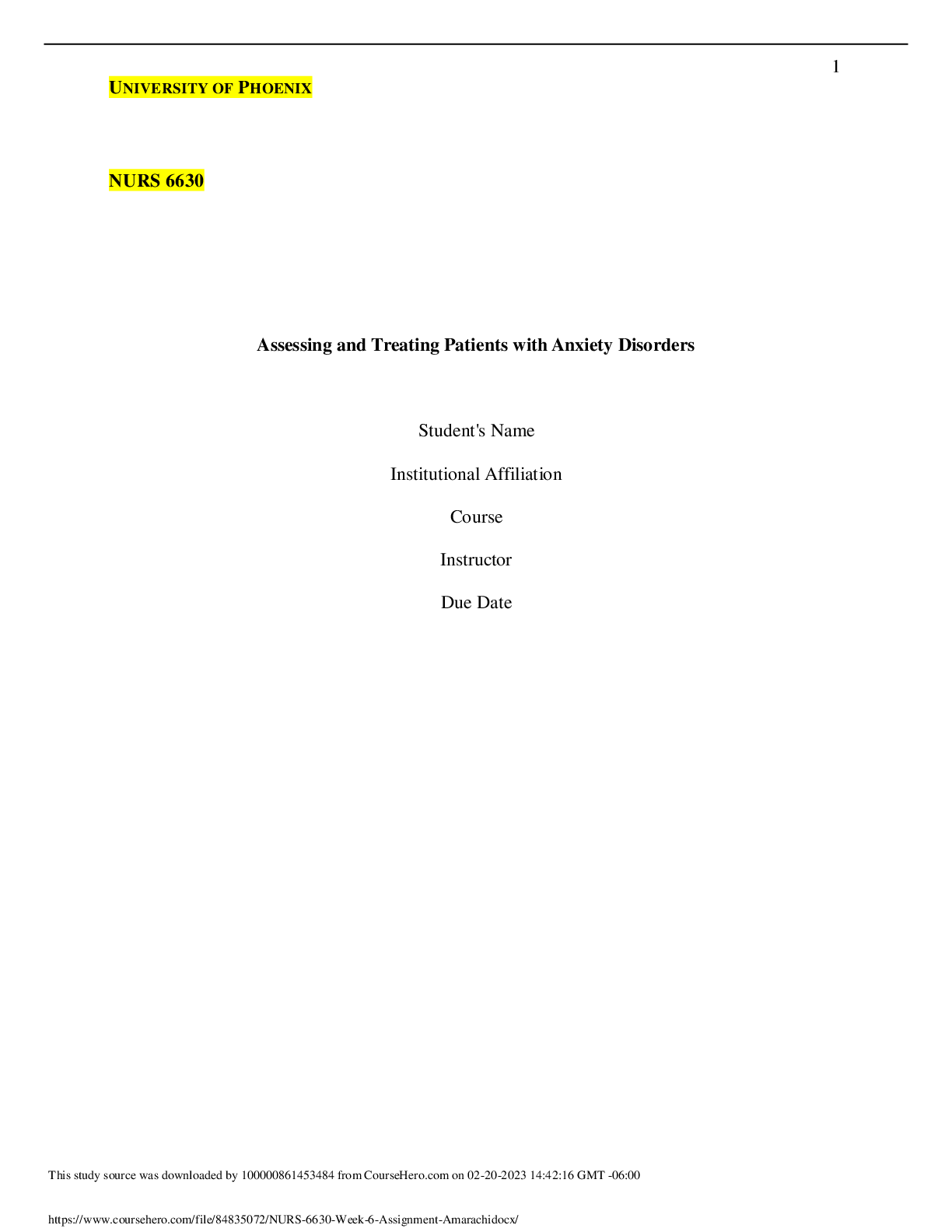
Reviews( 0 )
Document information
Connected school, study & course
About the document
Uploaded On
Jan 26, 2023
Number of pages
8
Written in
Additional information
This document has been written for:
Uploaded
Jan 26, 2023
Downloads
0
Views
85
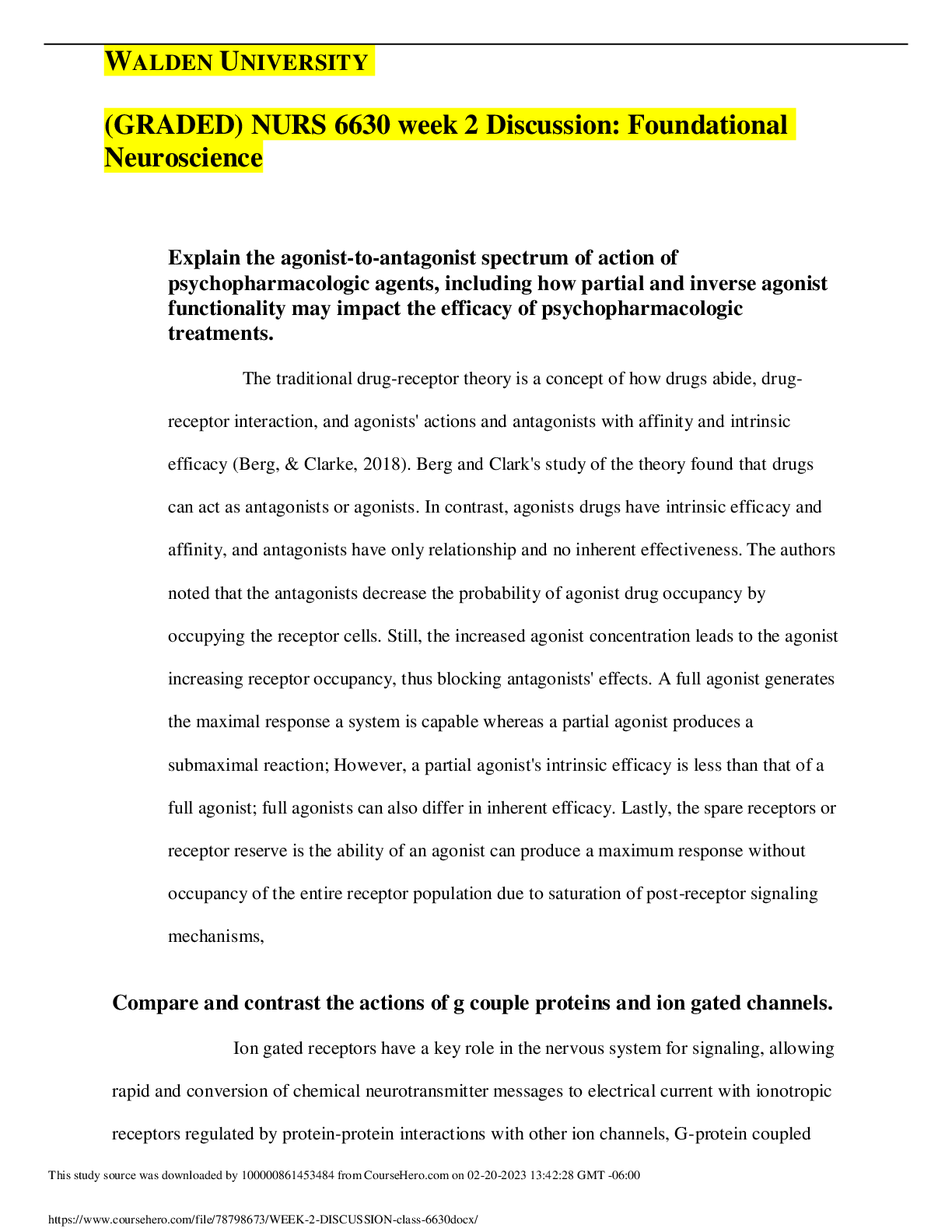

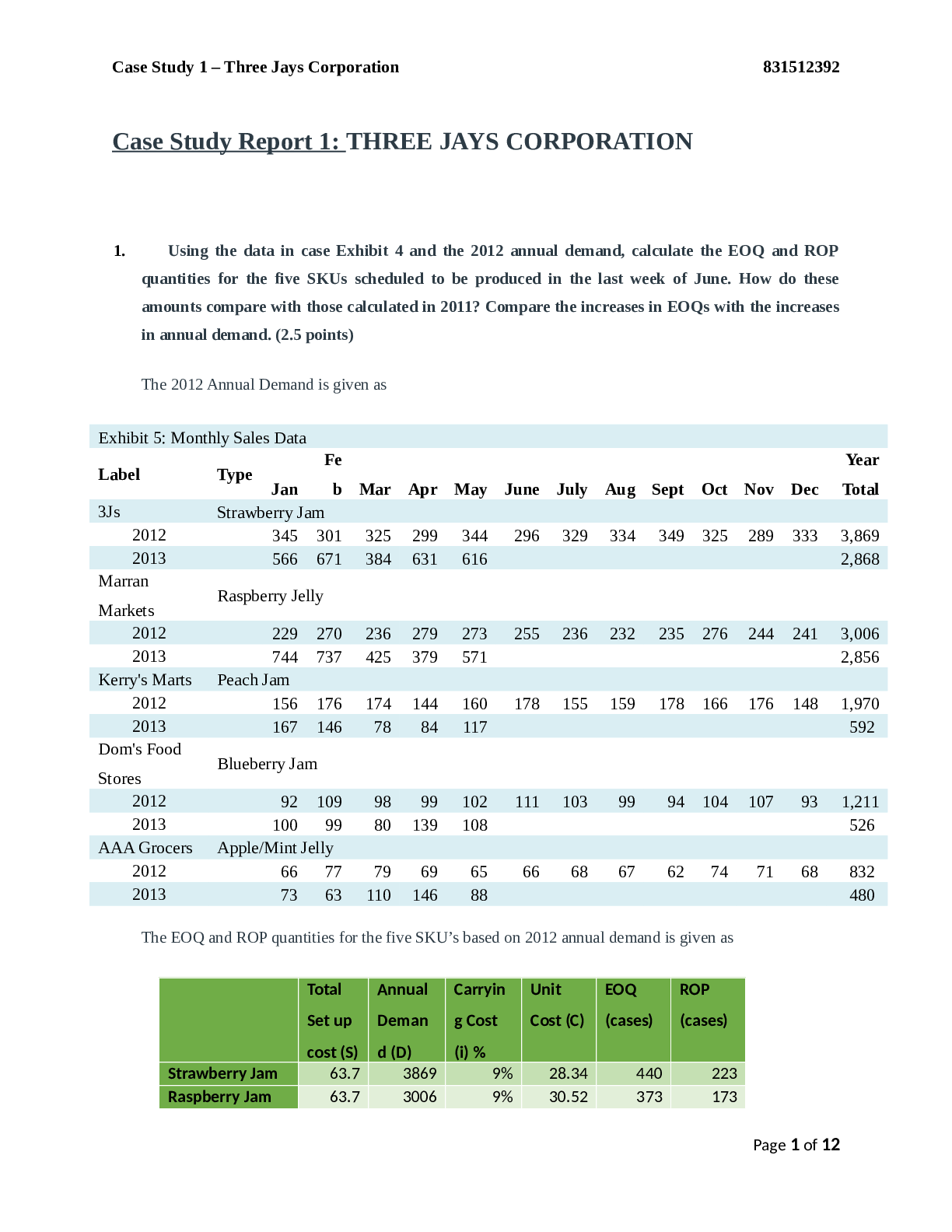
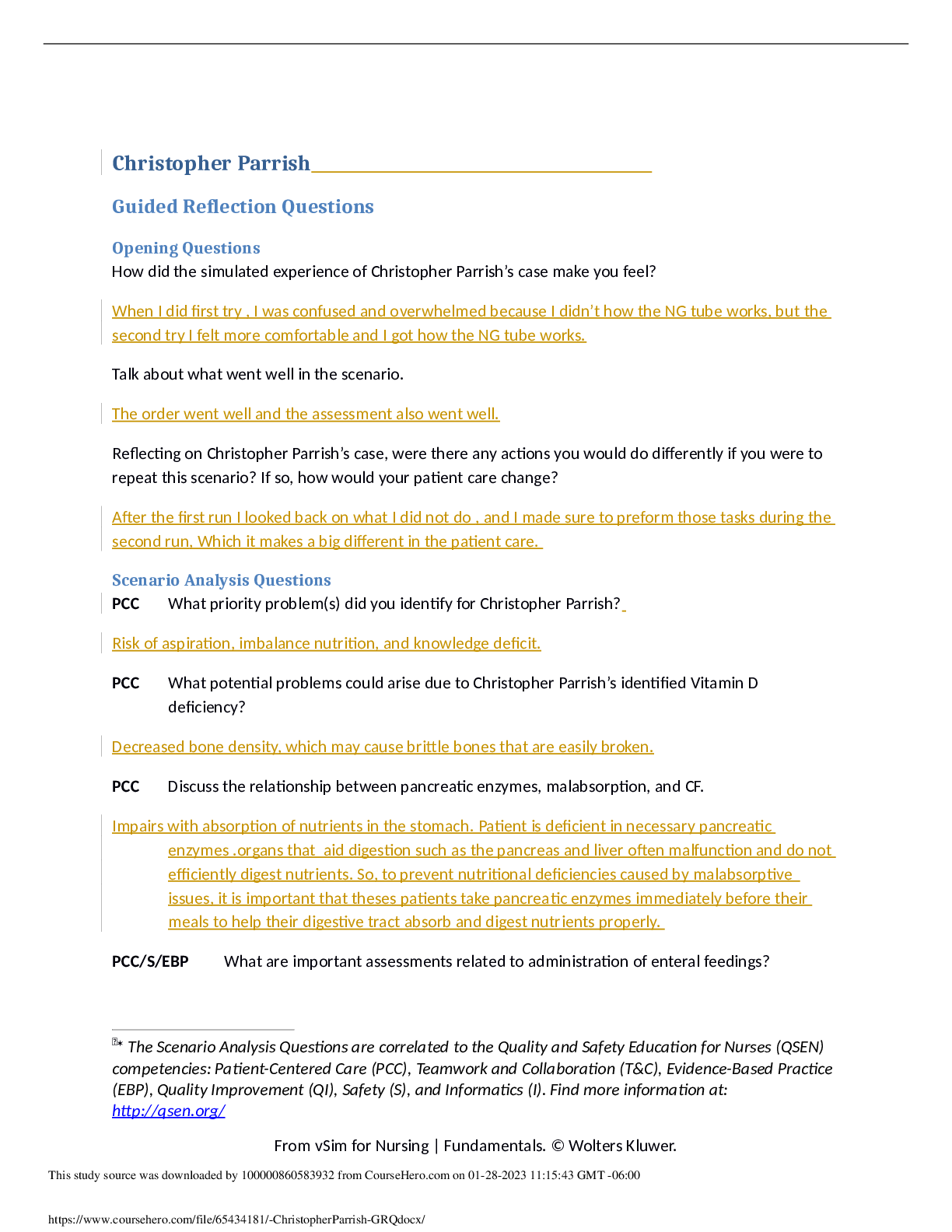
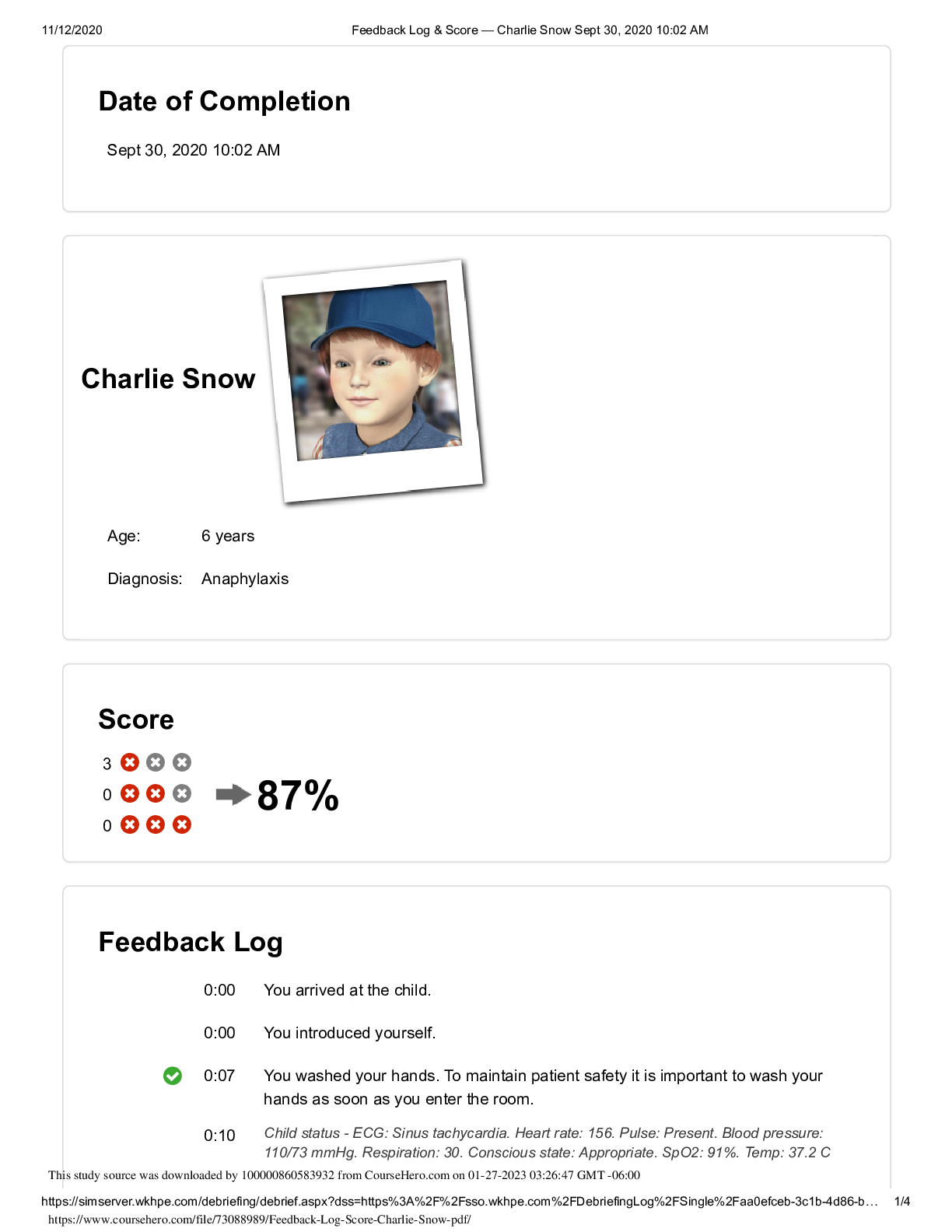
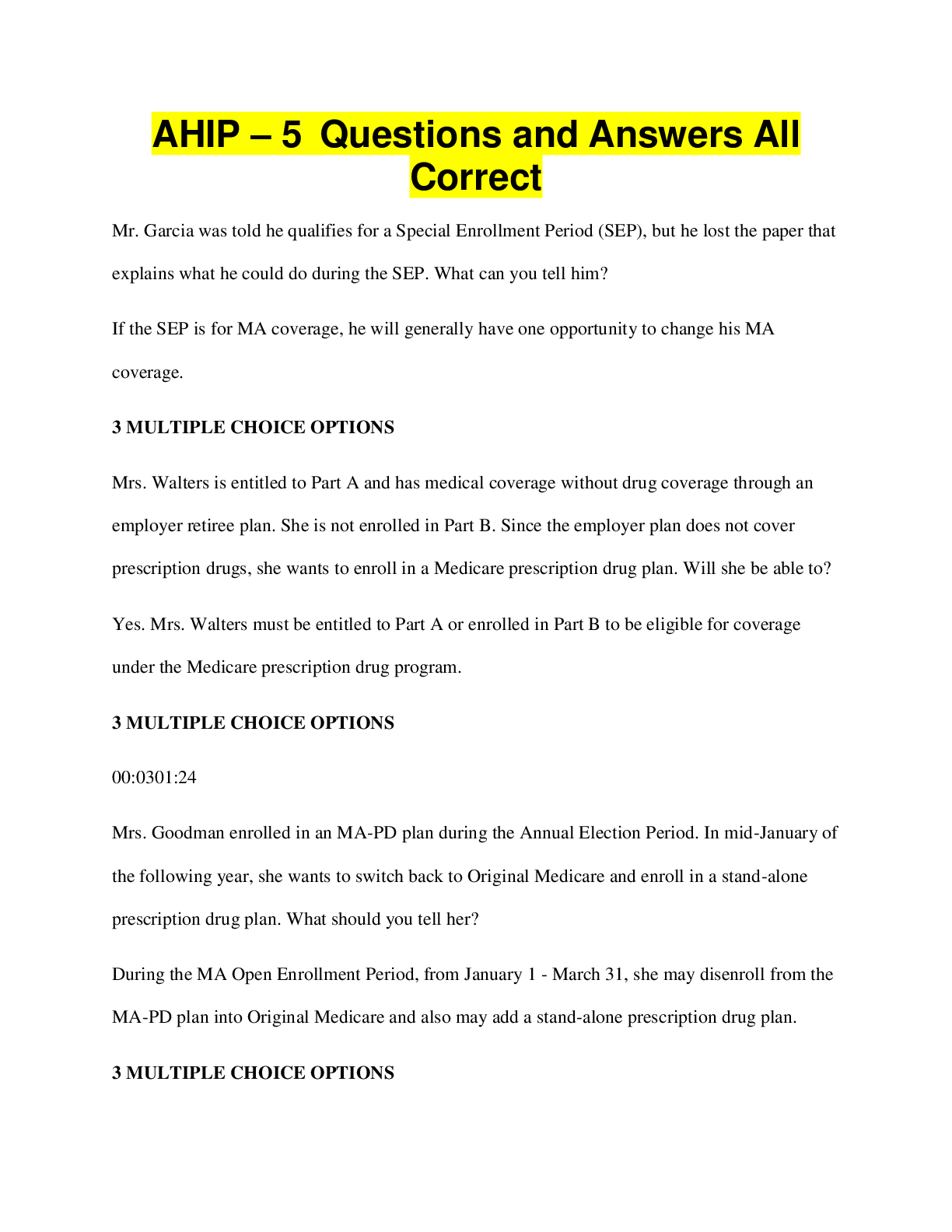
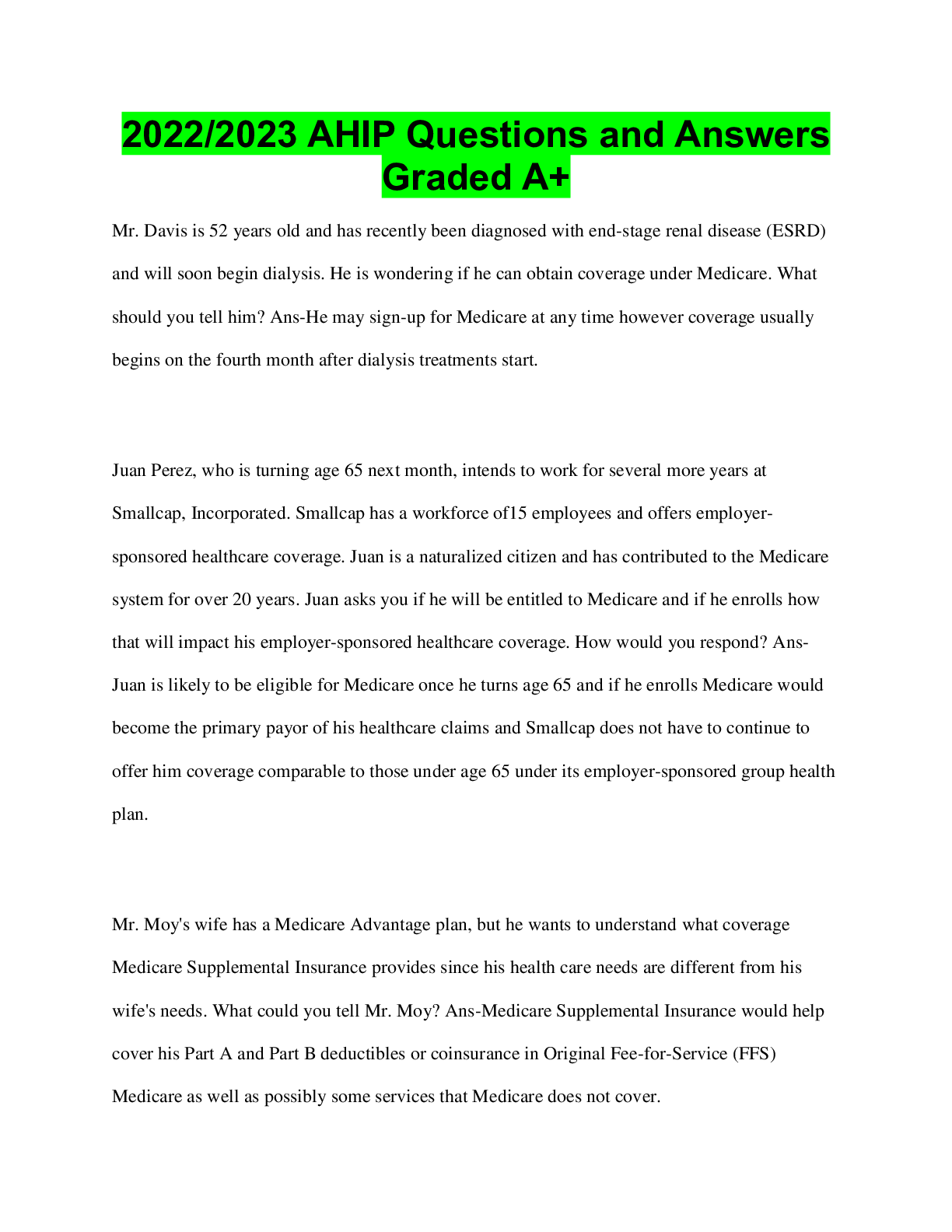
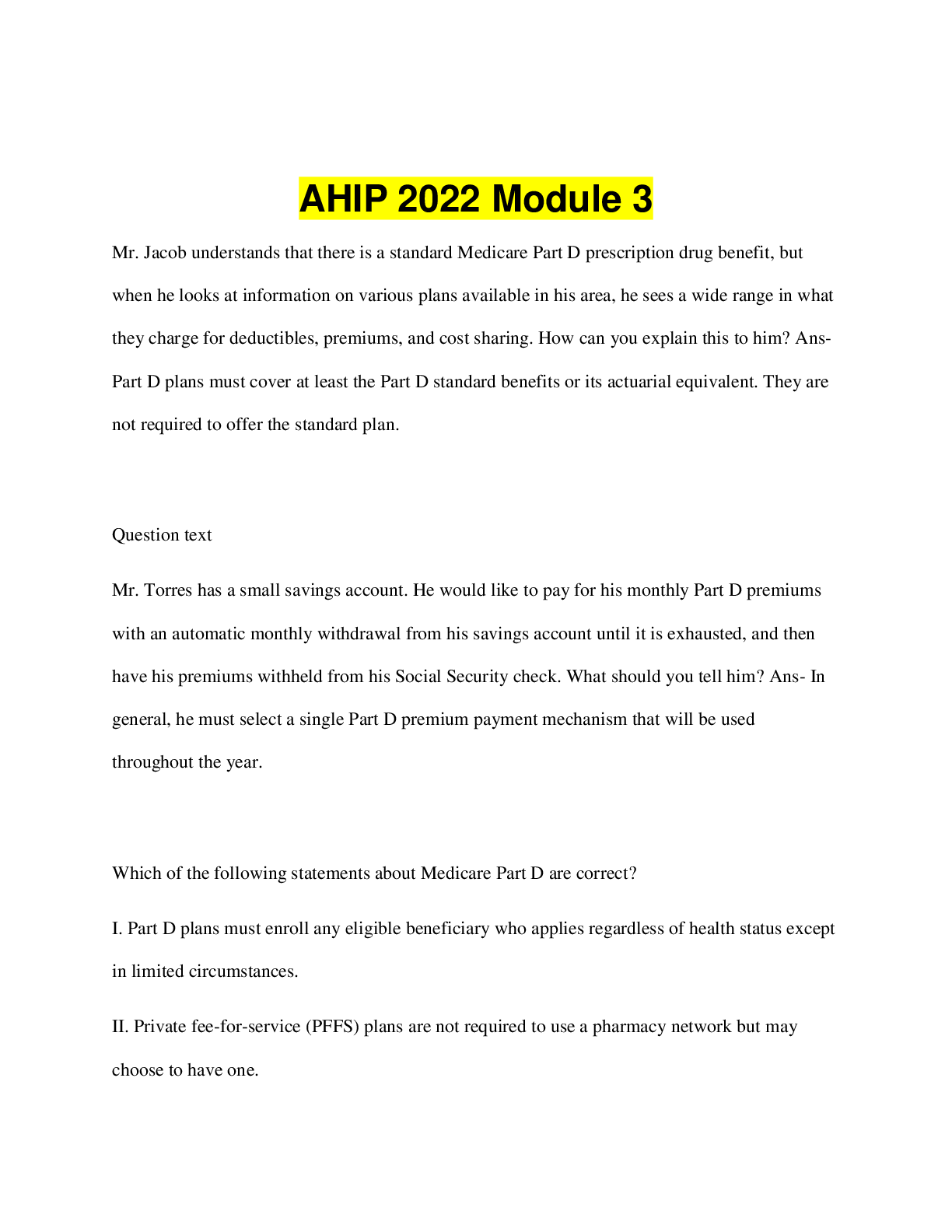
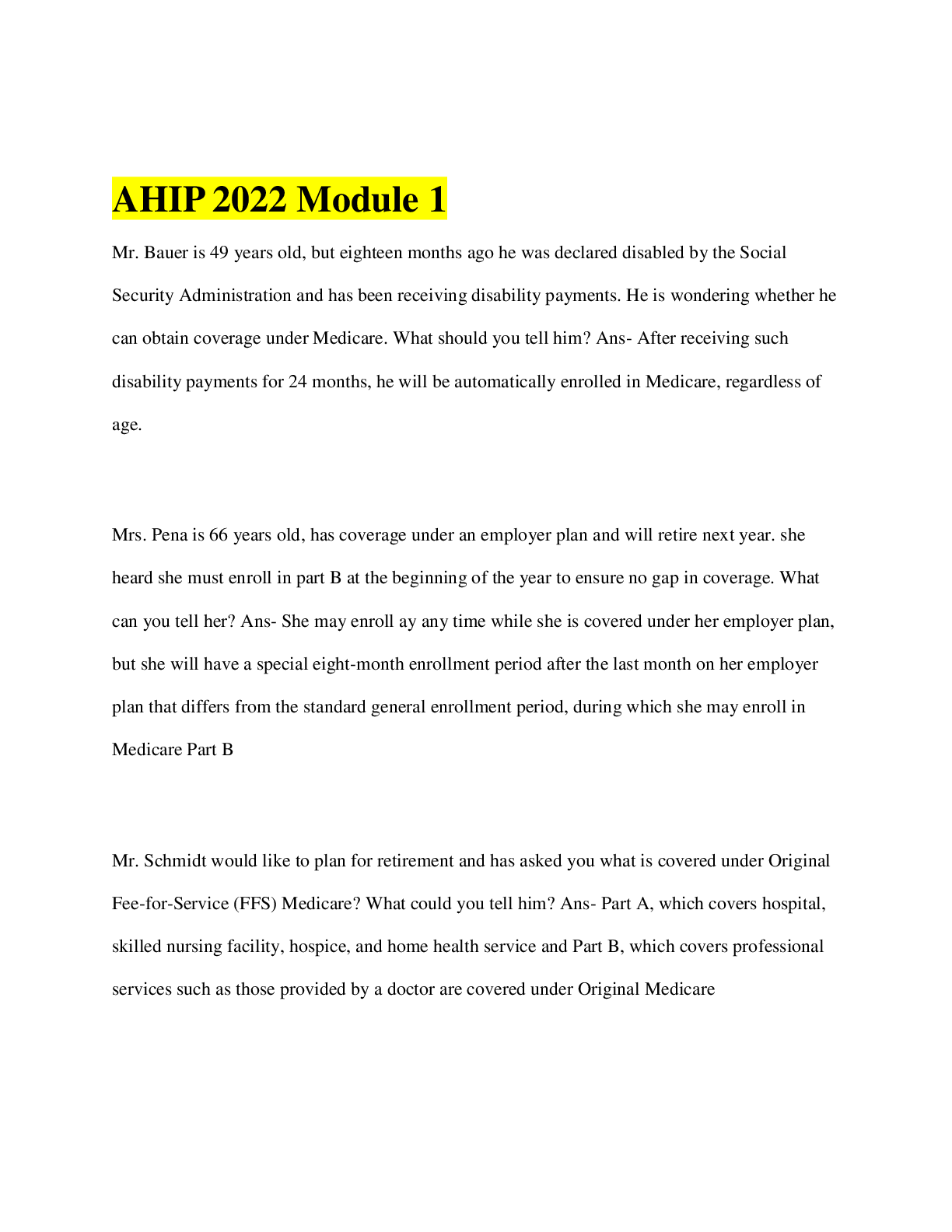
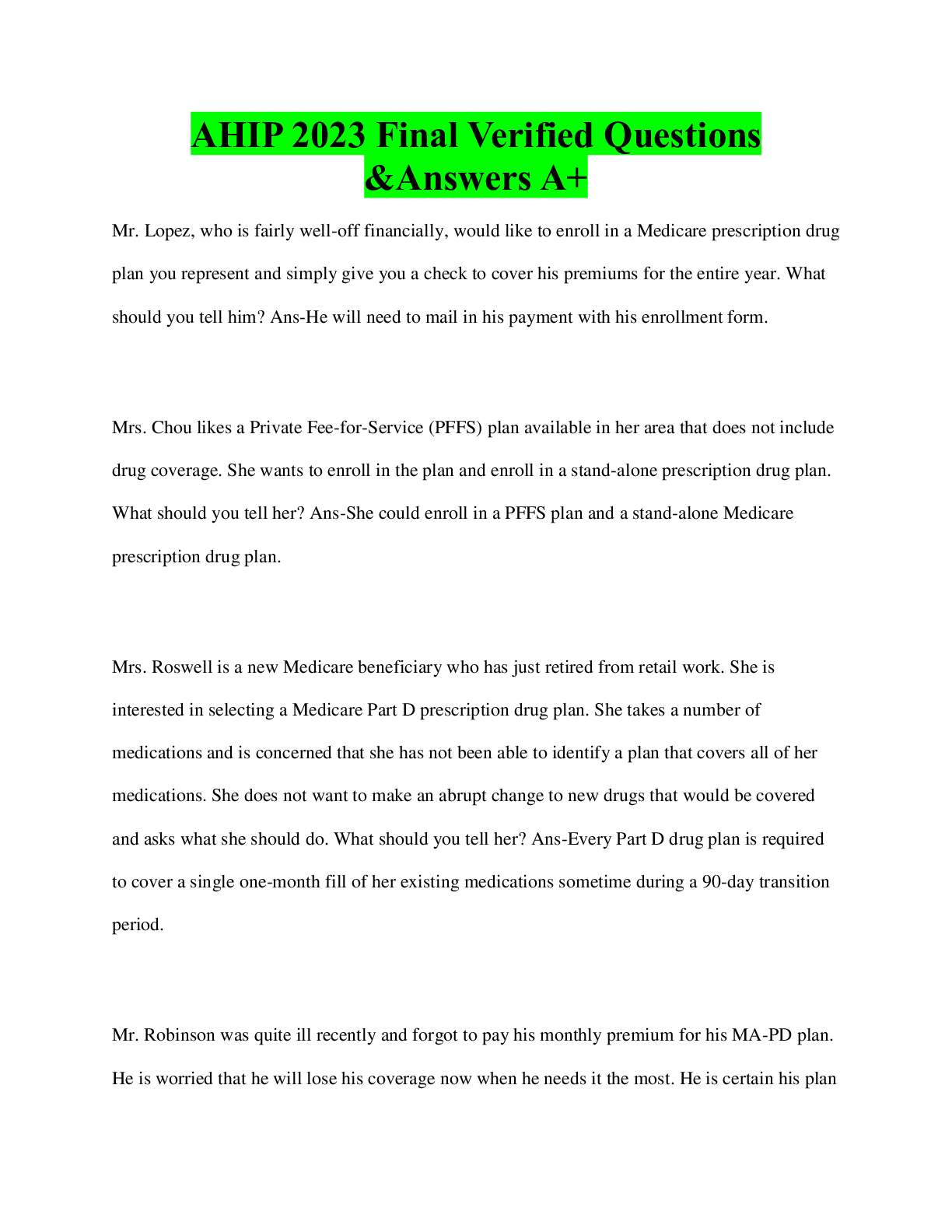


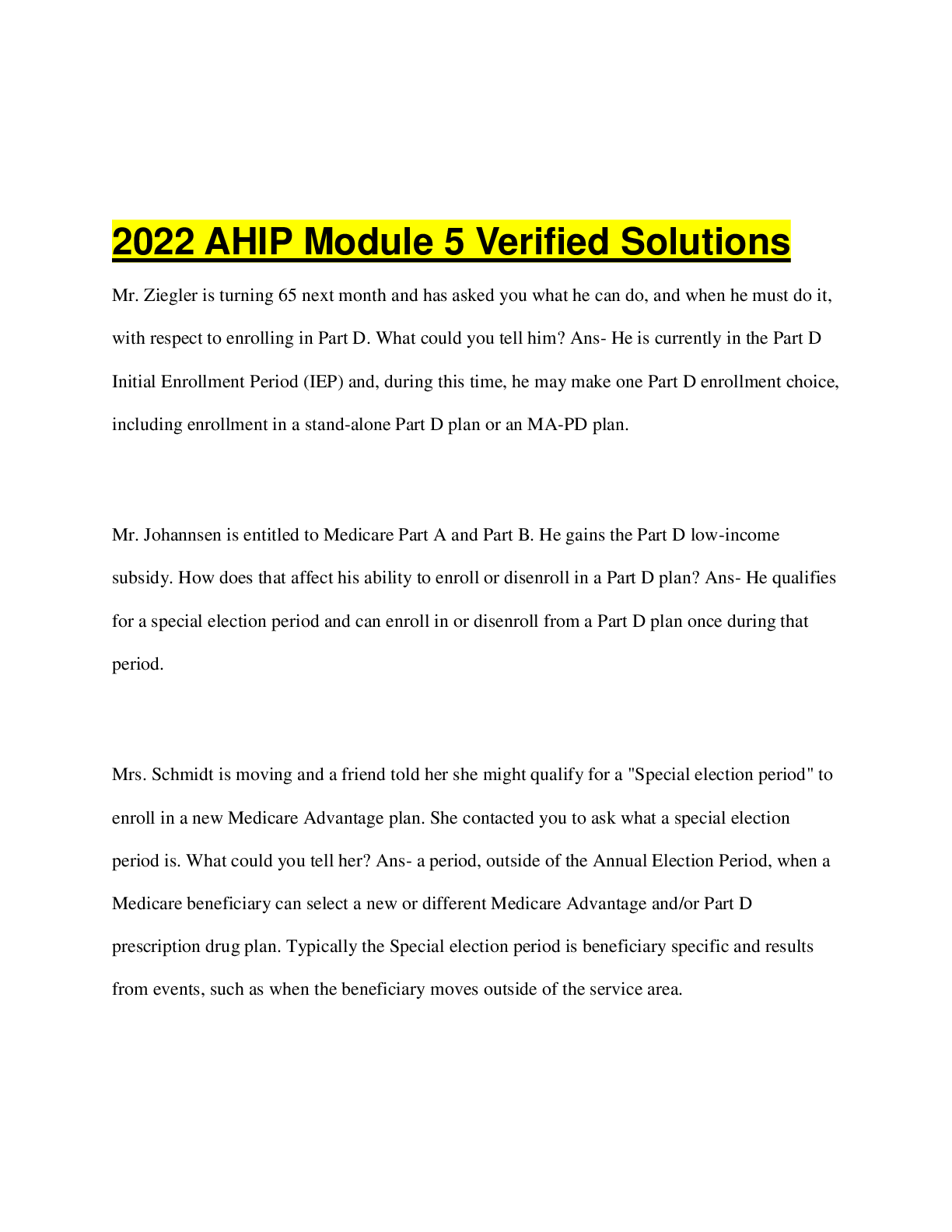
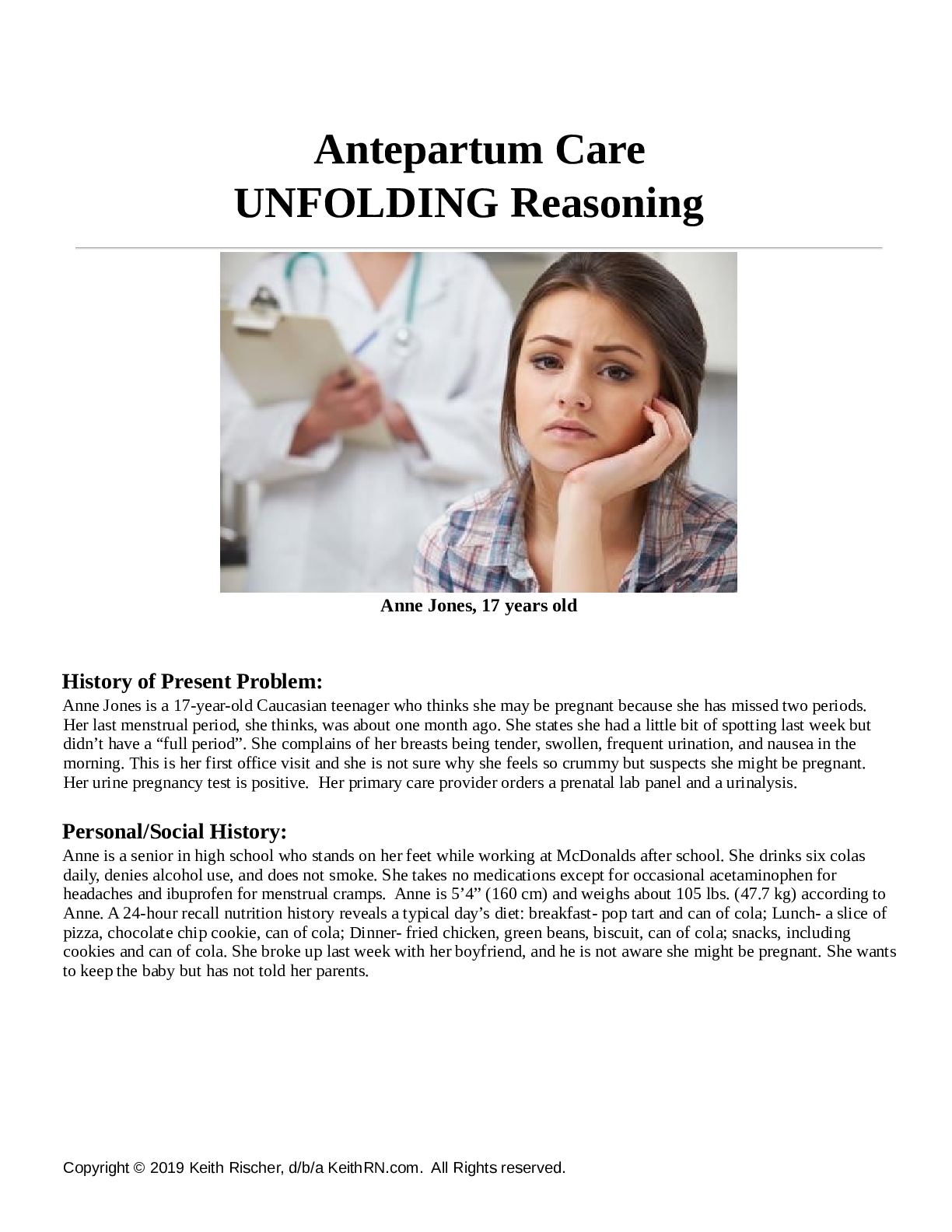
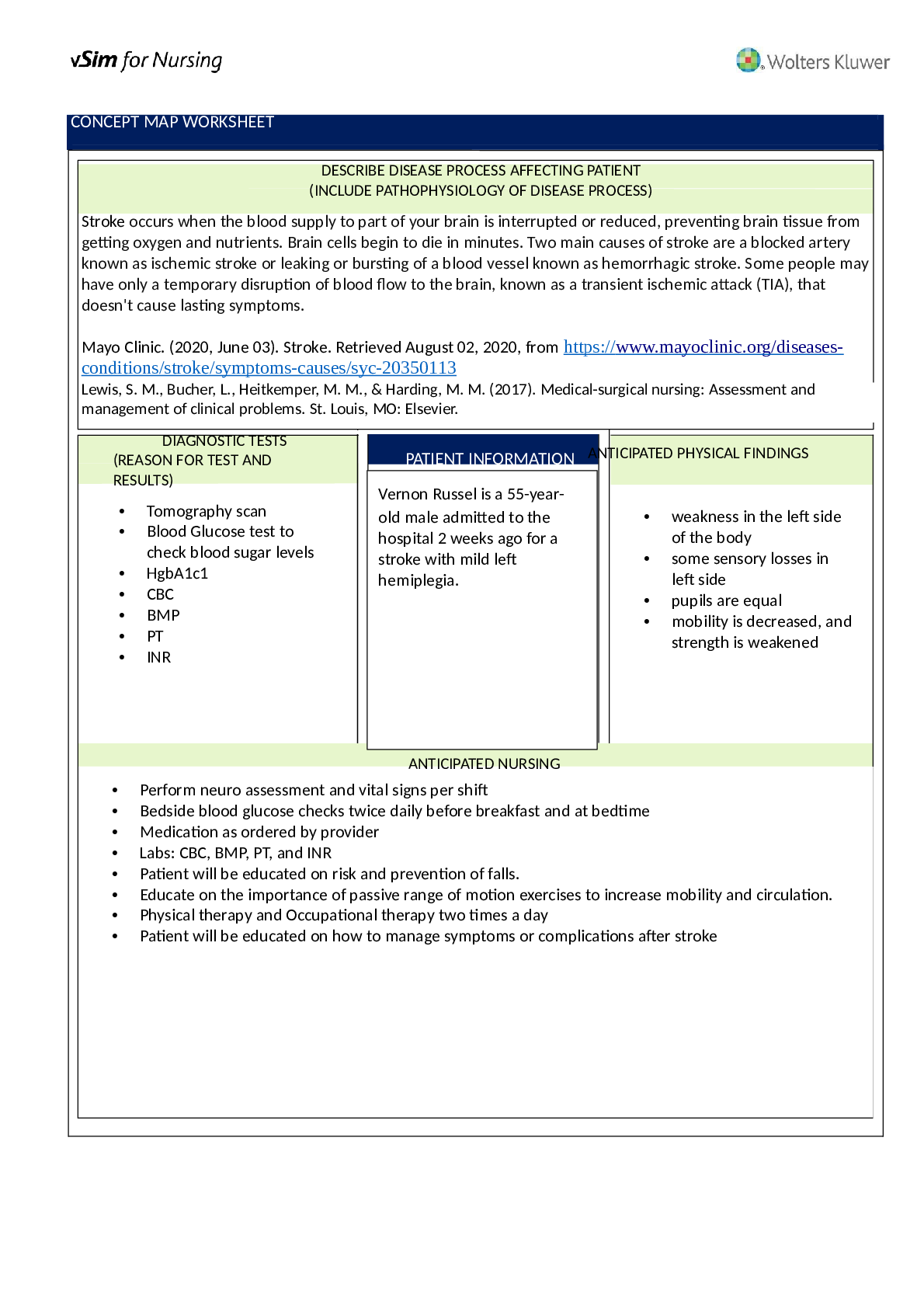

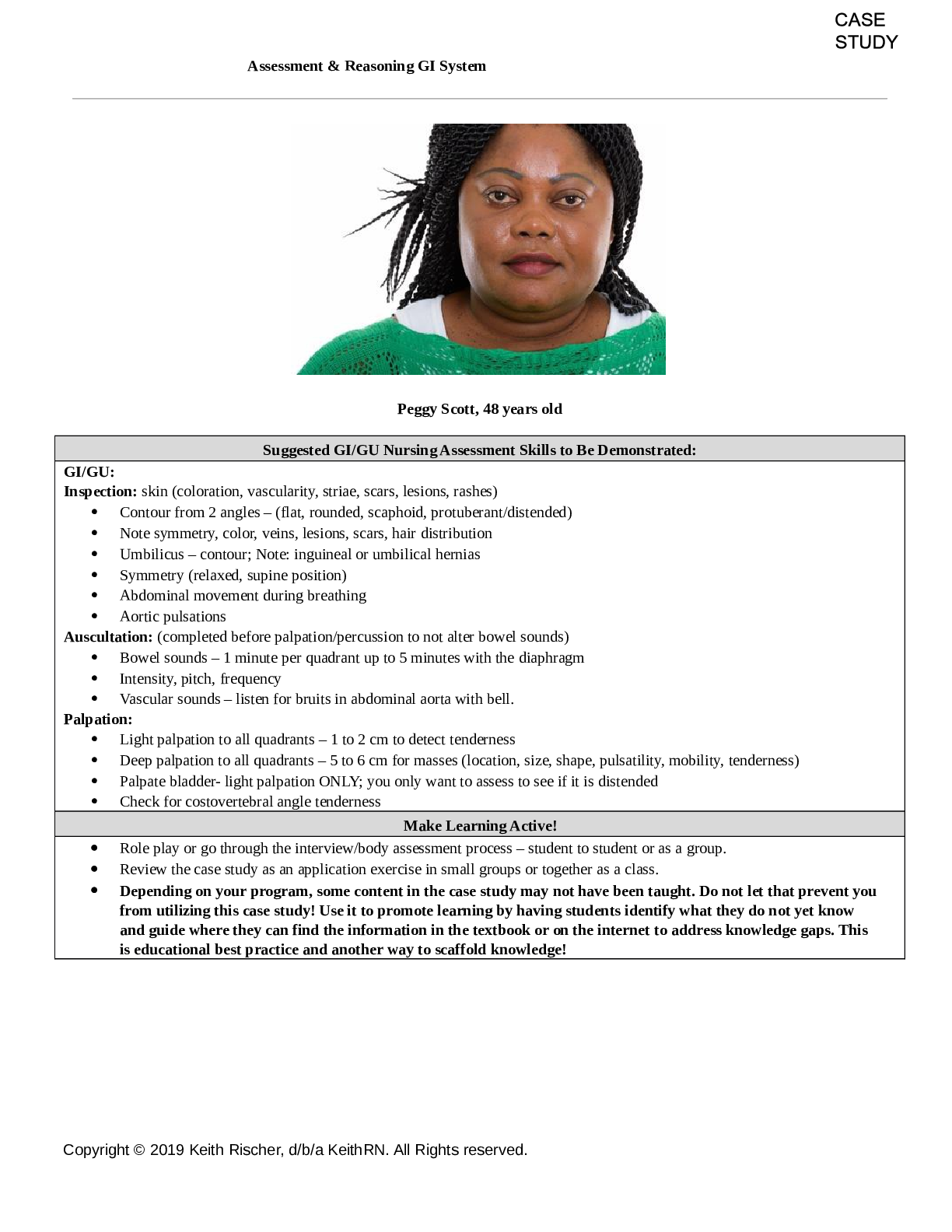
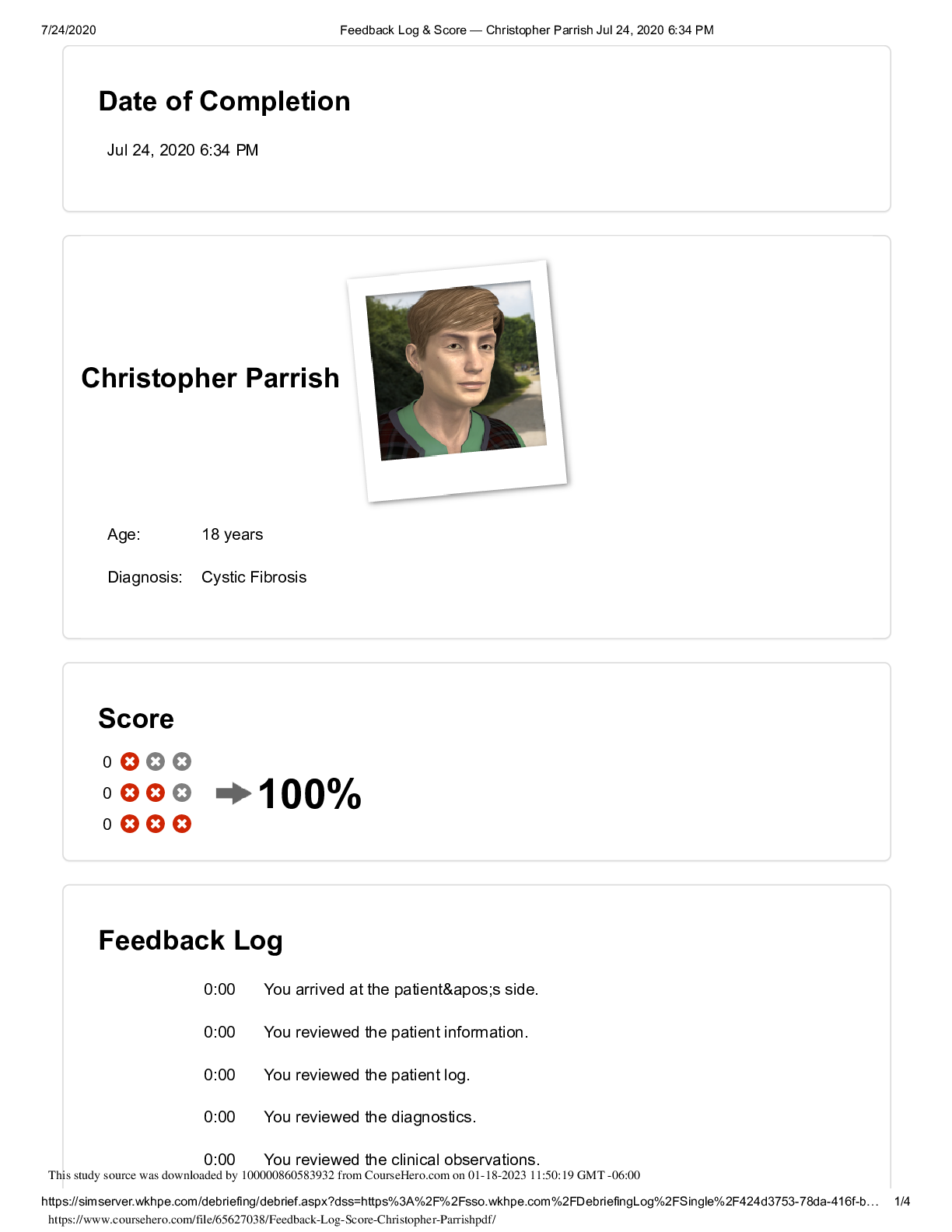



 (1).png)
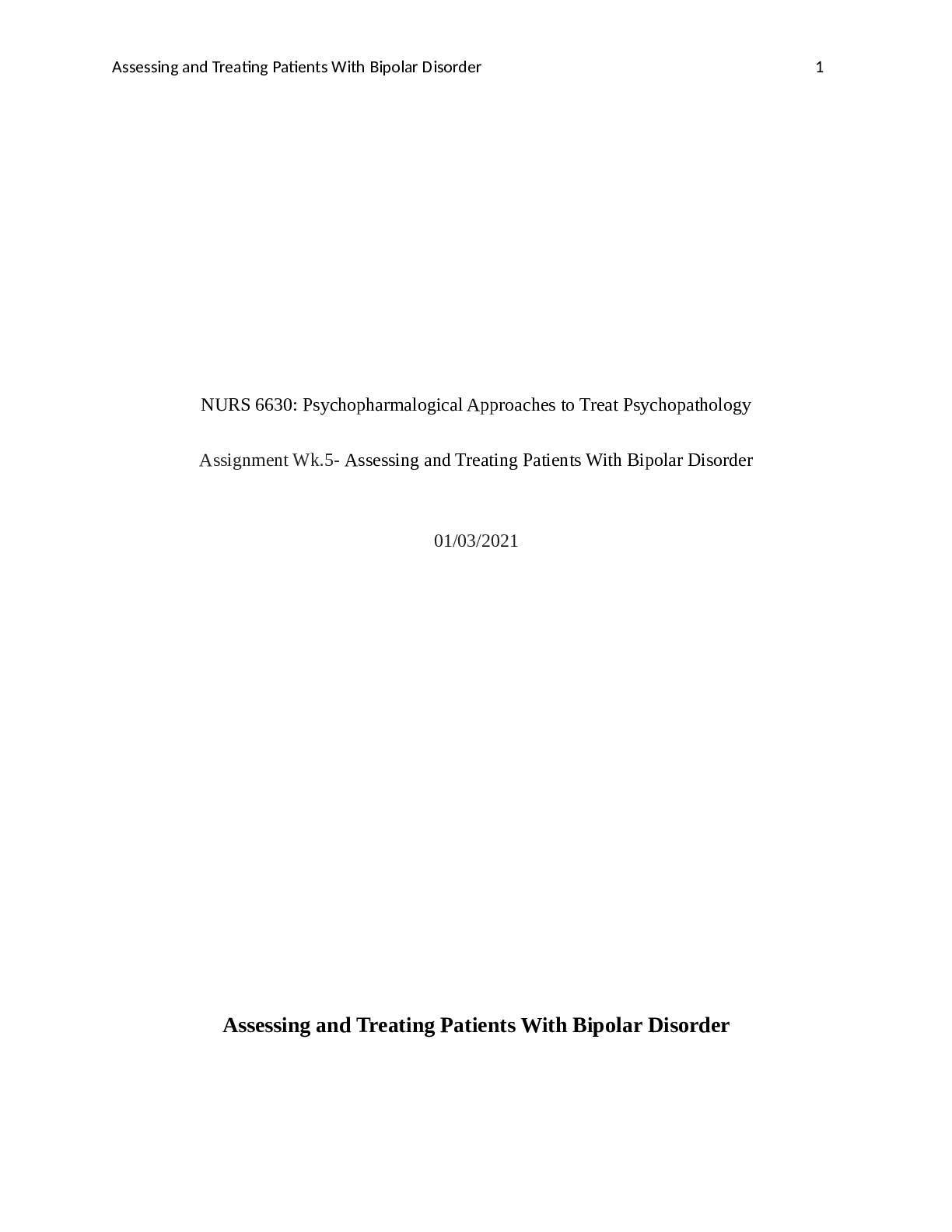

.png)
